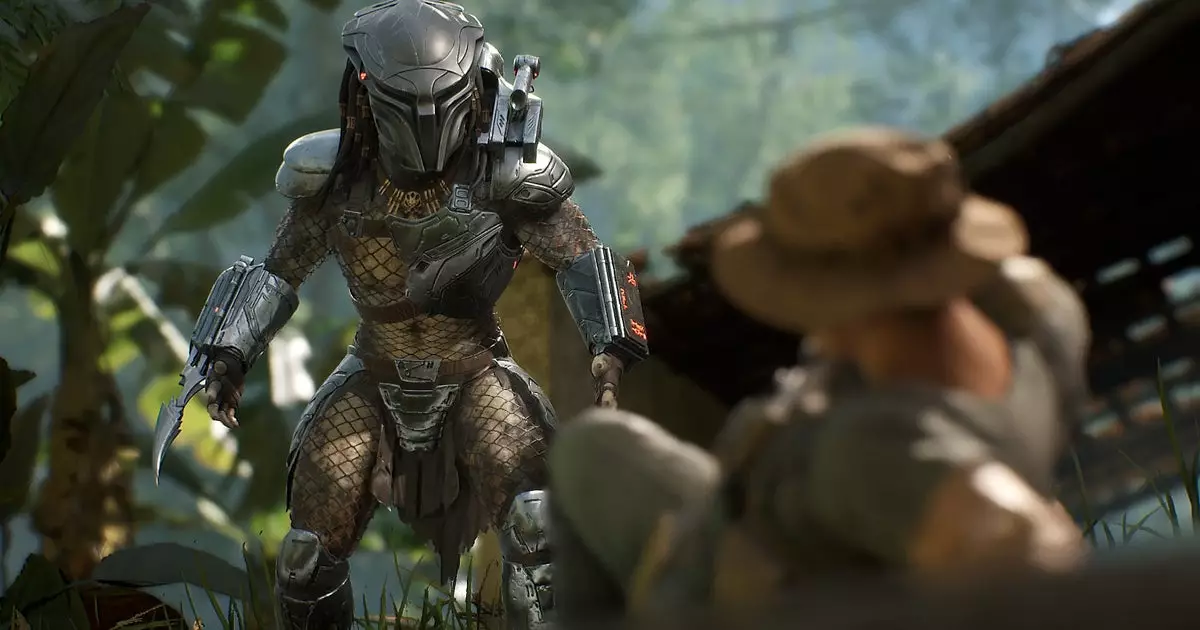In recent discussions surrounding the evolving landscape of video games, one of the most provocative topics has been the potential for crossovers, particularly within successful franchises. Arrowhead CEO Johan Pilestedt has sparked much conversation with his bold musings on the direction of Helldivers 2, hinting at crossovers with several beloved intellectual properties, from Trench Crusade to iconic films like The Fifth Element. While some players may view this notion as an exciting opportunity, a critical examination reveals not only the risks inherent in such expansionism but also the implications for the preservation of original content and narrative integrity.
The excitement surrounding potential partnerships with other franchises often overshadows a fundamental truth: over-reliance on existing brands can lead to dilution. Pilestedt himself hinted at this risk, noting that integrating too many third-party licenses might undermine the unique identity of the Helldivers universe. This concern is not unfounded. Video game franchises thrive on establishing a distinct thematic and narrative universe. When a game begins to feel like a patchwork of different IPs, it can lose its core appeal, creating confusion rather than clarity for the player.
Consider, for example, the current gaming landscape where numerous titles leverage existing properties for short-term gains. The addition of content from franchises like Star Wars or Predator may attract initial interest, but it poses the risk of alienating core players who were drawn to Helldivers for its unique satirical take on warfare. Instead of enriching the subsequent narrative, these additions can lead to a loss of coherence, transforming immersive experiences into a chaotic hodgepodge.
There is an undeniable allure associated with nostalgic connections to established franchises. For instance, who wouldn’t be excited by the mere mention of an expansion that intertwines the Helldivers narrative with the likes of the Terminator or Aliens? However, while nostalgia can serve as a powerful engagement tool, it must not come at the expense of innovation. Helldivers has cultivated a dedicated following in part because of its unique voice and sharp satire.
As Pilestedt attempts to generate buzz around potential crossover expansions, one must ponder whether such moves are rooted in creative exploration or merely in capitalizing on established fan bases. The challenge remains: how can developers strike a balance between fan service and genuine narrative invention? Players crave fresh experiences, and a reliance on existing properties can feel more like an easy fix than a pathway to true innovation.
The openness with which Pilestedt has shared his ideas might be refreshing, but it also underscores a growing complexity in player expectations. In a rapidly changing gaming environment, players are becoming more discerning about content quality and integrity. Any crossover must be executed with care, ensuring that the additions not only enhance gameplay but also resonate with the broader themes and aesthetics established within the Helldivers universe.
Furthermore, there exists the challenge of catering to diverse gaming communities. Some players might embrace the chaos of crossovers, perceiving it as a license for experimentation and fun, while others may find it to be a diversion that strays from the essence of Helldivers. When the expectation is set for interconnected narratives, developers may unwittingly place themselves under pressure to deliver, risking the overall experience if they overextend their reach.
In essence, while the bold ambitions of Johan Pilestedt to expand Helldivers 2 through crossovers are brimming with potential, they are fraught with complexity. There is excitement in the possibilities—a chance to reimagine beloved universes alongside new narratives. Yet, this exhilaration is tempered by the risks of brand dilution, the challenge of maintaining originality, and the need to manage player expectations carefully.
To navigate this intricate landscape, developers must ensure that any crossover experience serves to enrich the Helldivers identity rather than detract from it. If handled judiciously, these expansions could lead to a dynamic and refreshed gaming experience. However, history teaches us to tread carefully—potential expansion should never overshadow the strength of the original narrative. As the community waits with bated breath, one can only hope that the brave new world of Helldivers manages to find that delicate balance between honoring its roots while ambitiously reaching for the stars.


Leave a Reply